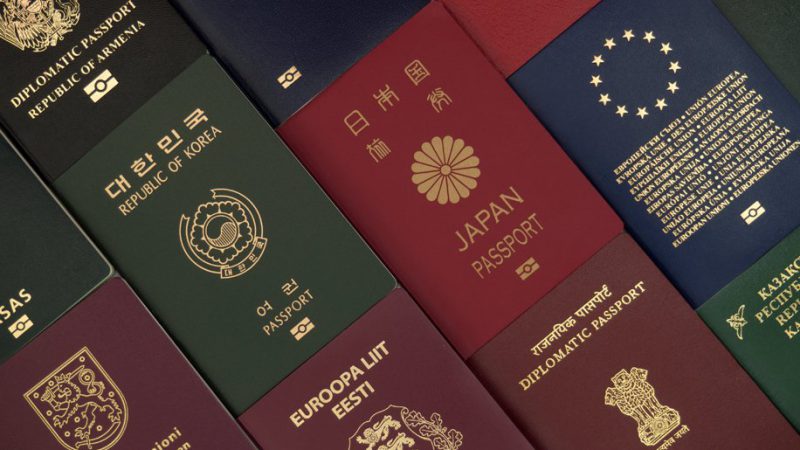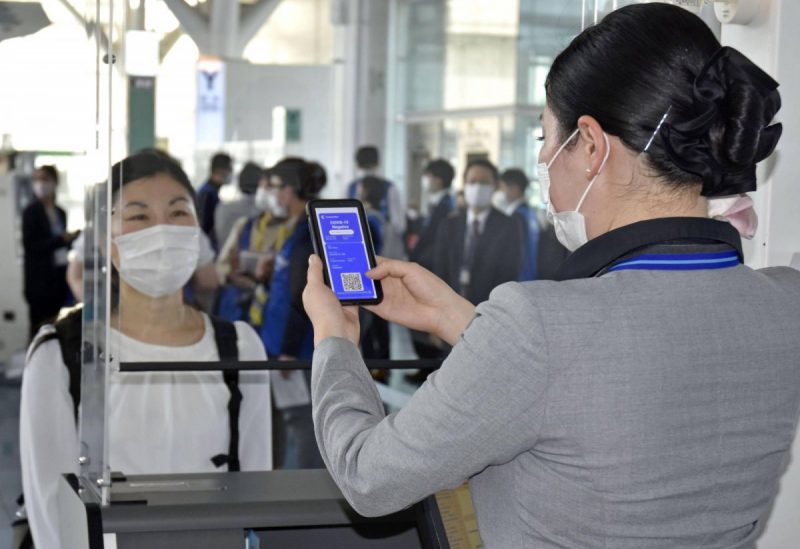How Powerful is Your Passport?
If it comes from Japan, you can freely cross into nearly 200 countries
May 3, 2021


As vaccination rollouts gather momentum in certain countries, the resumption of regular international travel is no longer a pipedream. But what post-pandemic freedoms will be afoot halting or hastening our passage across borders? The latest results from the Henley Passport Index, which ranks all the world’s passports according to the number of destinations their holders can access without a prior visa, provide at least a little insight into what post-pandemic travel freedom might look like as countries around the world selectively begin to open their borders to international visitors.
Without taking temporary and constantly evolving Covid-19 travel restrictions into account, Japan firmly holds onto the number one spot on the index. International Air Transport Association (IATA) data confirms that Japanese passport holders are theoretically able to access a record 193 destinations around the world visa-free. Singapore remains in 2nd place, with a visa-free/visa-on-arrival score of 192, while Germany and South Korea share a joint-3rd place, each with access to 191 destinations.
As has been the case for most of the index’s 16-year history, the majority of the remaining top 10 spots are held by EU countries. The UK and the US, both of which continue to face steadily eroding passport strength after holding the top spot in 2014, currently share joint-7th place, with a visa-free/visa-on-arrival score of 187.
The latest results indicate that the gap in travel freedom is now at its largest since the index began in 2006, with Japanese passport holders able to access 167 more destinations than citizens of Afghanistan, who can visit only 26 destinations worldwide without acquiring a visa in advance.
 China and UAE Rising
China and UAE Rising
Although there has been very little movement in the Henley Passport Index since the outbreak of Covid-19, taking a step back reveals some interesting dynamics over the past decade. Q2 2021 saw China rising by 22 places in ranking since 2011, from 90thposition with a visa-free/visa-on-arrival score of just 40 to 68th position with a score of 77. The most remarkable turnaround story on the index by far, however, is the UAE, which continues its stellar ascendance. In 2011, the UAE was ranked 65th with a visa-free/visa-on-arrival score of 67, while today, thanks to the Emirates’ ongoing efforts to strengthen diplomatic ties with countries across the globe, it is ranked 15th with a score of 174.
Wealthy Nations Flounder
With extensive travel restrictions still in place globally, any level of international travel freedom remains theoretical. It is somewhat ironic that Japan is ranked 1st — which effectively means its citizens are the most welcomed in the world — yet recently made the difficult decision to bar spectators from abroad from the rescheduled Olympic and Paralympic Games Tokyo 2020, now planned to commence in July. But with the rollout of mass vaccination programs in certain wealthy and advanced economies such as the EU, the UAE, the UK, and the US, global mobility will soon be a possibility again for some. For citizens of developing and emerging economies, where vaccine rollouts are much slower, and where passports tend to offer far less travel freedom in general — the future looks decidedly less rosy.
“While nobody expects a return to pre-pandemic mobility levels anytime soon, the outlook now is certainly more hopeful than it was even a few months ago. The latest Henley Passport Index ranking is a reminder that economic recovery and development are dependent on global mobility, including personal travel freedom, and that passport power should never be taken for granted,” said Dr. Christian H. Kaelin, Chairman of Henley & Partners and originator of the passport index concept. The past year has demonstrated that no government is infallible — even the world’s superpowers and wealthiest nations floundered — and many failed their citizens, he added.
Competition for Talent Charged by Covid
Looking ahead the survey suggests that adaptability and responsiveness will be critical to the survival and success of countries and individuals alike. Parag Khanna, Founder and Managing Partner of FutureMap, says the second half of the year may well see millions of people scattering again. “The shifting patterns of migration in the post-Covid world (when it comes) will be non-linear and perhaps unpredictable. They will mimic the reality of a world in which there are many unfolding crises, from pandemics to climate change to political polarization. Countries facing fiscal pressures as well as skilled labor and investment shortages will seek to attract and recruit everyone from start-up entrepreneurs who can stimulate innovation to doctors and nurses who can boost public health services. The global war for talent is now well underway,” said Khanna.
Greg Lindsay, Director of Applied Research at NewCities, writes in the Henley & Partners report that “destinations ranging from Helsinki to Dubai in terms of climate and temperament are already drafting programs and policies targeting footloose talent whose employers have given them permission to roam.” Lindsay also suggests that the ballooning rate and popularity of programs catering to mobile workers means that “any global destination without one is at risk of being left behind when the world opens up again”.
However, for some countries, notably the US, embracing a more fluid approach to migration is by no means a given or a solution. Annie Pforzheimer, Senior Non-Resident Associate at the Center for Strategic and International Studies and a member of the Council on Foreign Relations, points out in the Henley & Partners report that the current polarized political environment means that “immigration reform faces significant headwinds,” with strong resistance from Republicans to President Biden’s ambitious plan. Pforzheimer says that “Congress also must take steps regarding the EB-5 Immigrant Investor Program, due to expire on 30 June.” An EB-5 Reform Bill has been introduced, but Pforzheimer points out that “while there may not be opposition to the bill, moving legislation at all has been thorny in the US Congress.”
Vaccine Passports Create Questions
Prof. Mehari Taddele Maru, a part-time Professor at the Migration Policy Centre and a Fellow at the United Nations University Institute on Comparative Regional Integration Studies in Belgium, comments that “countries able to vaccinate their populations relatively rapidly will also facilitate their citizens’ higher mobility and attract visitors for business and leisure, while countries that are facing conflicts and those that lack funding to ensure adequate storage and efficient distribution of vaccines will lag behind in easing mobility restrictions. Fundamentally, this is attributed to the power asymmetries between wealthy and better-governed nations on the one hand, and those that are not on the other.”
Meanwhile, countries offering residence- and citizenship-by-investment programs continue to perform very well on the Henley Passport Index, with Malta being a prime example in 8th position with a visa-free/visa-on-arrival score of 186 (an increase from its score of 184 in January’s index). Other top-performing investment migration program host countries include Austria (ranked 5th, with a visa-free/visa-on-arrival score of 189), Australia (ranked 9th, with a score of 185), Portugal (ranked 6th, with a score of 188), St. Lucia (ranked 30th, with a score of 146), Montenegro (ranked 44th, with a score of 124), and Thailand (ranked 65th, with a score of 80).
There has been a significant spike in demand for investment migration programs as entrepreneurs and affluent investors seek to overcome the lifestyle limitations and corporate and financial risks of being restricted to a single jurisdiction. “It is clear that diversifying country risk has become a priority in terms of personal access rights as well as financial and property investment. Even high-net-worth individuals from advanced economies with premium passports and world-class healthcare systems are now looking to create portfolios of complementary citizenship and residence options. They all share the same intention — to access health security and optionality in terms of where they can live, conduct business, study, and invest, for themselves and their families,” said Dr. Juerg Steffen, CEO of Henley & Partners.




